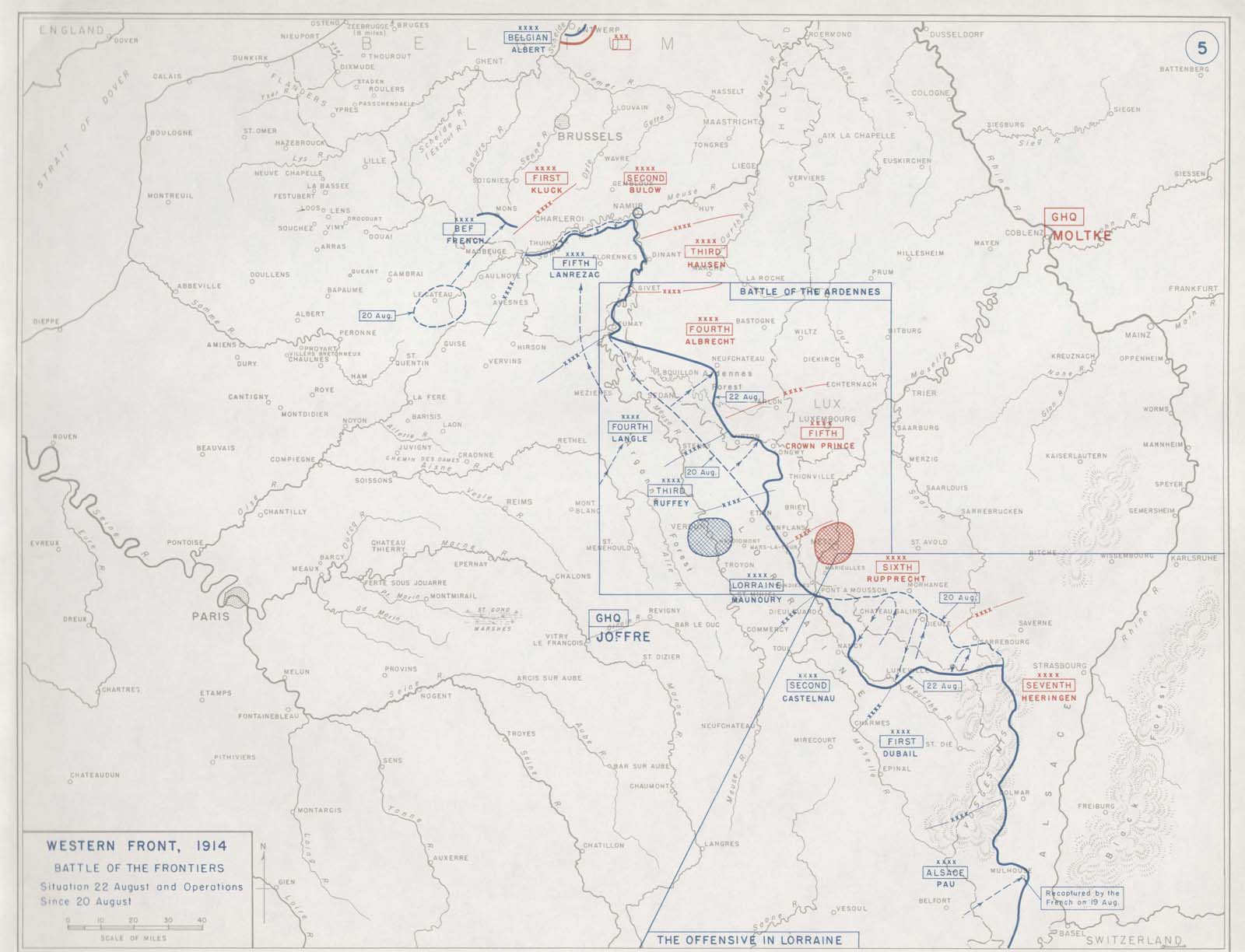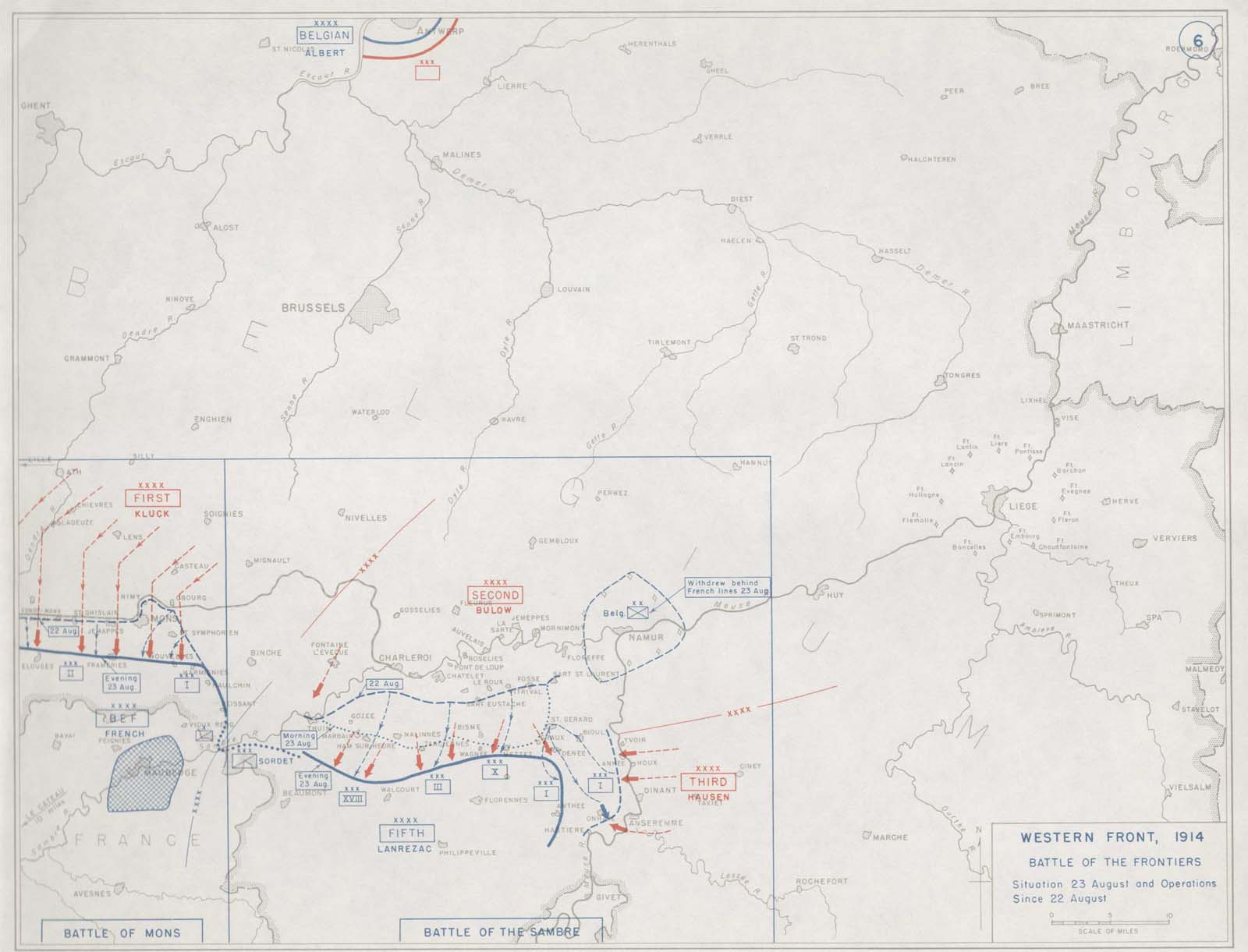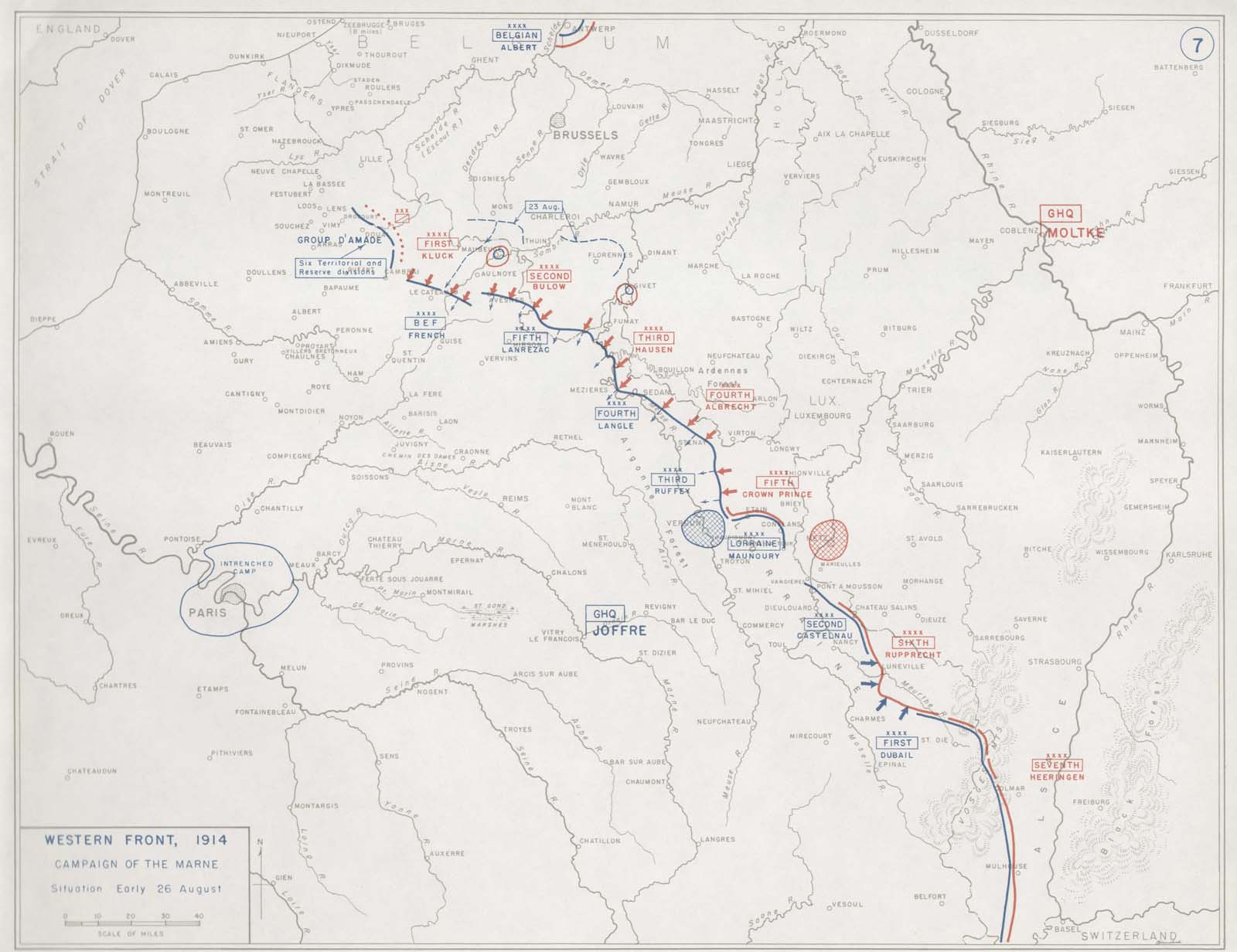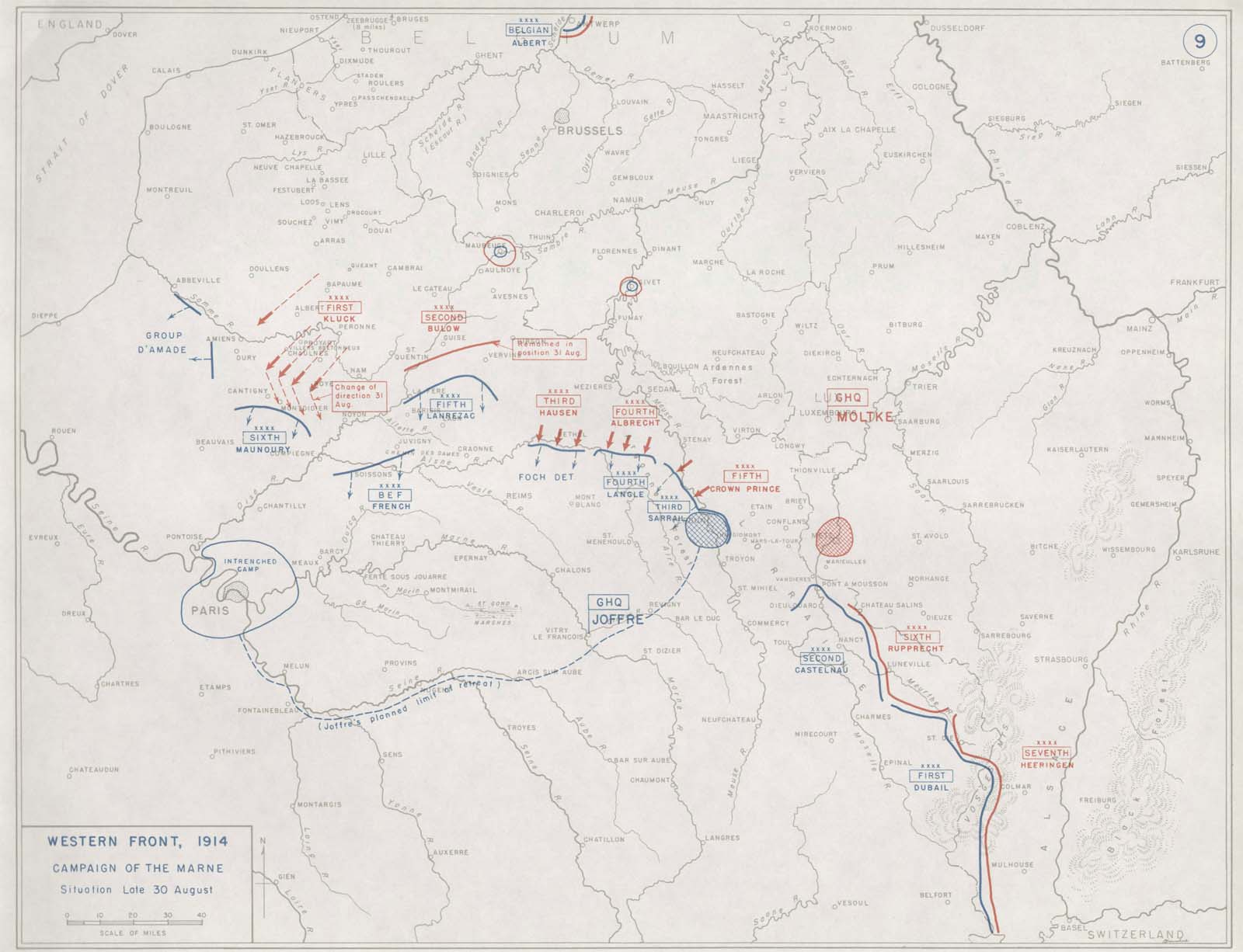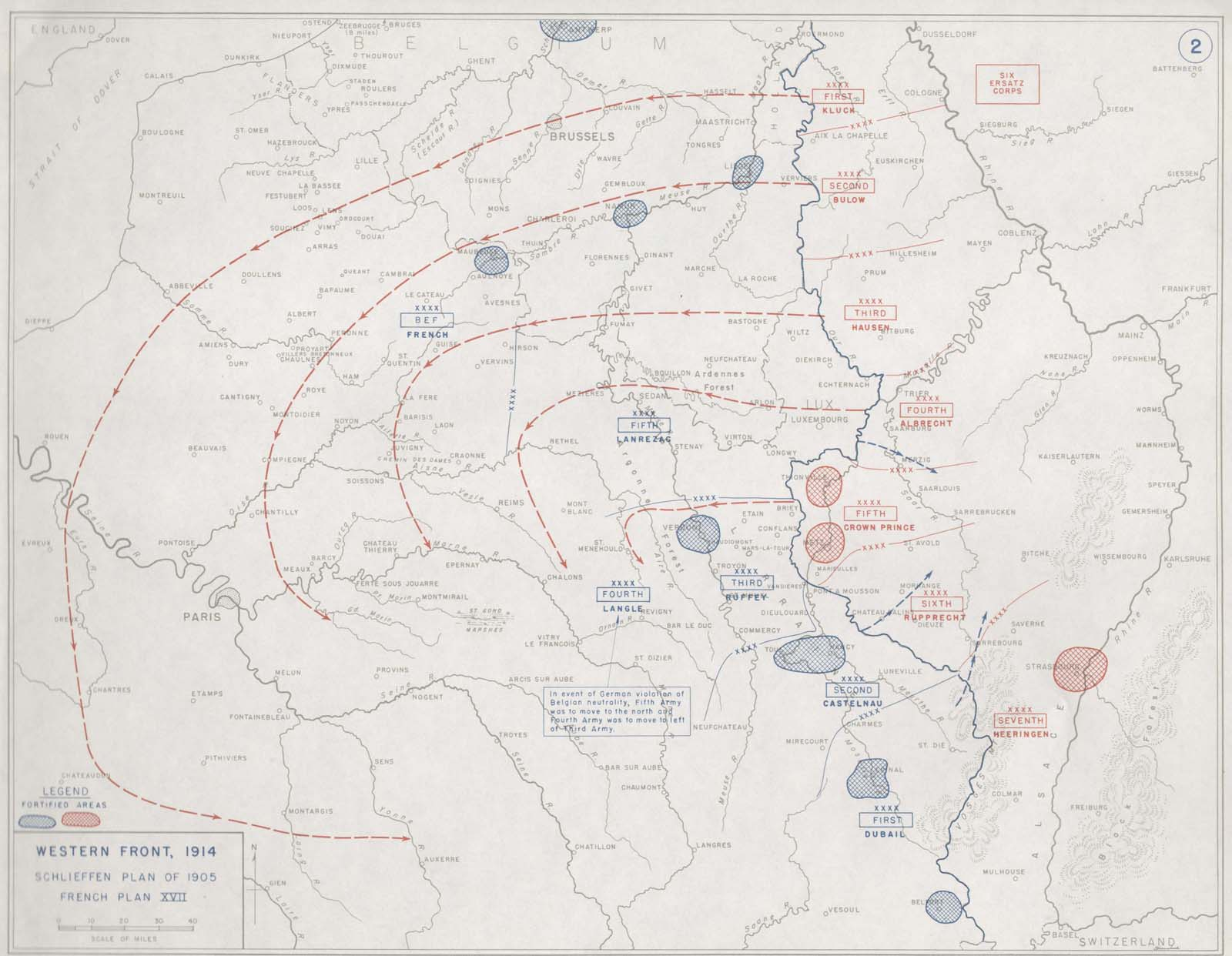Interesting, WW1 isnt my strongest area (that being the napoleonic wars) lets say the French abandon the plan XVII and as such do not lose the men and equipment on the foolhardy assaults on the frontiers in august, I believe Plan XVI placed greater emphasis on the risk of a German attack through Belgium, so the 5th Army would be where it was OTL and the gap which the BEF filled could of been plugged with a '6th Army' as I believe i read some where that 2.9 million men were mobilized in the summer of 1914 in France.
I found this for the order of battle for france in 1914
In general terms, the five armies covered the following parts of the frontier with Germany:
5th Army- faced Ardennes from Hirson to Sedan with 240,000 men
4th Army- faced Luxemburg from Sedan to Longwy with 160,000 men
3rd Army- faced Thionville and Metz in Lorraine with 200,000 men
2nd Army-faced eastern Lorraine, in front of Nancy with 180,000 men
1st Army- faced northern Alsace between Luneville and Epinal with extra
responsibility for the Belfort ‘gap’ near the Swiss frontier, with
280,000 men.
could moving 80,000 men from the 1st Army and 20,000 from the 3rd to make a 100,000 6th Army be possible? which would then allow the BEF to act in the mobile reserve role?
It would, but it would be a-historical, as the French were offensively inclined because of their tactical doctrine, offensive a outrance. They were taught not to be passive strategically either, which is why their artillery was so mobile and did not have many howitzers. The advantage the French had was their quick mobilization, mobile forces, and very strong offensive doctrine, which they wanted to exploit by taking the fight to the larger and stronger German enemy before it could mass against them and use its superior firepower and numbers to steamroll France.
Plan XVII was a mobilization plan only, but was understood to be concentrating French forces for the offensive into either Belgium (politically unacceptable) or Lorraine. Eventually an Alsatian component was added once war was declared and France realized that her pre-mobilization mobilization on the Alsatian border gave them a serious, though evaporating, numerical advantage.
You had better have a pretty good reason for why France abandons the offensive, as it went against everything the French military thought about war at the time AND it was against the political treaty it had with Russia, which demanded that both France and Russia engage the German army as quickly as possible once war was declared. Also France had no idea it doctrine was badly flawed and thought they were going to win the quicker they acted, so it would require some serious hindsight to abandon their offensive plans by 1914.
French intelligence also had no idea that the Germans were massing so far north into Belgium, as they didn't think the Germans would try and take down Belgian forts (the German siege train was not official active yet and actually wasn't delivered until the war started, requiring Krupp factory personnel to operate it, because the German army hadn't yet been trained on the big guns...the project was also super secret and not really known outside German upper echelons), as neither the French nor British thought there were mobile artillery pieces big enough for the job. They were wrong.
The French thought the Germans then could only move through the Ardennes, which meant that a 6th army was not needed and the 5th army was big enough. They also thought because the Germans wouldn't be flanking the 5th army or the French border forts, that they could contain the German advance in a specified area and their superior mobile artillery would chop le Boche to pieces while their big howitzers were lagging behind. Again lots of incorrect assumptions that were only understandable in hindsight.
Edit:
If you look at French planning in the context of the Schlieffen Plan being unknown, with the Ardennes the furthest north the German advance would reach, with the BEF planned to flank the 5th army up to Maubeuge, the last French fortress the Germans were expected to contact, then their deployment makes perfect sense and a French 6th army in reserve or taking the BEF's place is pointless. Also understand too that it was very important politically for the BEF to be engaged in the earliest battles for the French and British public; supposedly it was said by Joffre that if the British sent him even one soldier, he would make sure that soldier died in combat. That way the British public would a rallying point for the war, as they had shed blood in the conflict, therefore couldn't skip out if things got too hairy. It was also important for French morale that the British were fighting and dying alongside the French army:

